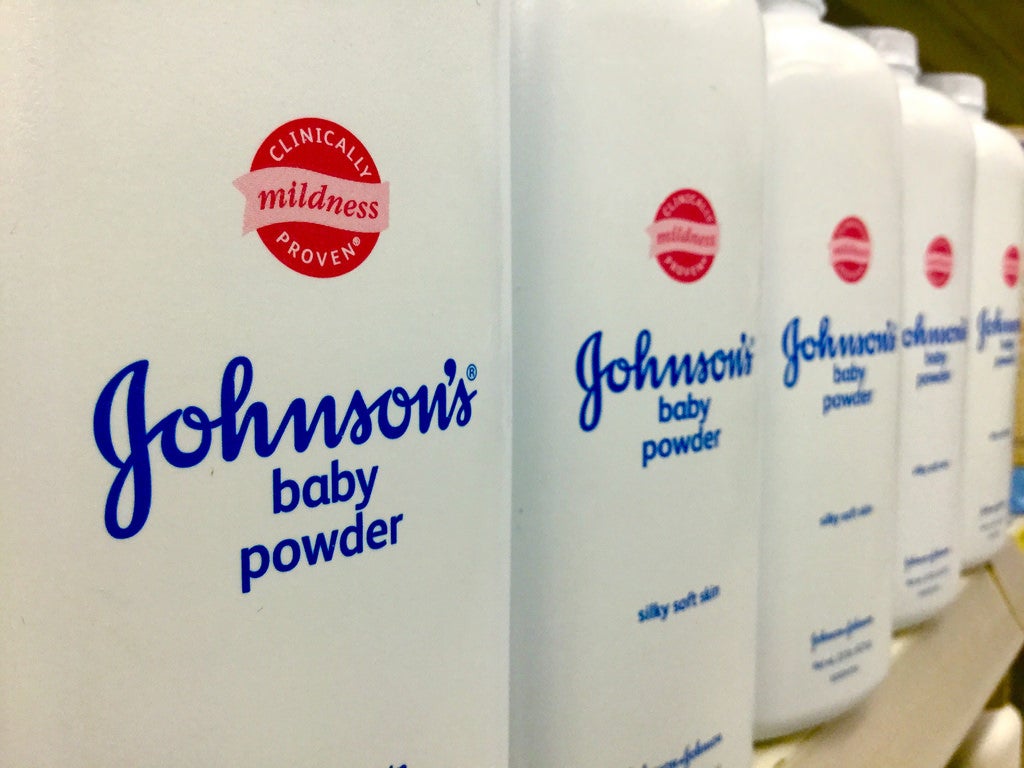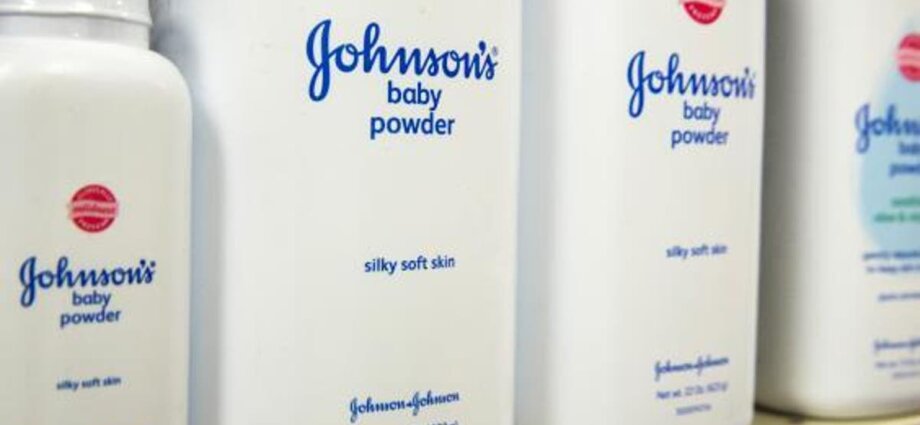A man in Maine is suing pharmeceutical giant Johnson & Johnson for $25 million over the death of his wife, claiming that use of its “dangerous and defective” talcum powder caused her death.
The lawsuit, filed in September in Cumberland County Superior Court in Portland, claims Cynthia Cartwright ingested asbestos while using the product, Pecos River Talc, which is a subsidiary of Johnson & Johnson.
As a result, she contracted a rare and aggressive form of cancer, the lawsuit argues.
Cartwright died four days after she was diagnosed with mesothelioma in 2017, according to the filing, seen by the Portland Press Herald. The suit has been being brought by Cartwright’s widower, Andrew Curtin.
Cartwright “used the J&J Products to powder her feet and other bodily parts,” the lawsuit said, per the Press Herald.

“As a direct and proximate result of Ms. Cartwright’s purchase, use and application of Defendant’s unreasonably dangerous and defective talcum powder and joint compound J&J Products” she ingested asbestos, which caused the mesothelioma, the suit states.
According to the American Lung Association (ALA), mesothelioma is “an aggressive and rare form of cancer that usually occurs in the thin layer of tissue that lines the lungs (pleura) or the abdomen (peritoneum).”
Johnson & Johnson “should have known that the J&J Products contained harmful, deleterious, carcinogenic and inherently dangerous asbestos dust and fibers” and the products reportedly did not contain any warning labels, according to the suit.
Johnson & Johnson has denied the allegations levelled by Curtin, and the company has filed a motion requesting the lawsuit be moved from state court to federal court.
In a response filed on December 19, Johnson & Johnson said the Food and Drug Administration (FDA) has “primary and exclusive jurisdiction over the safety of cosmetic talc-containing products, and primary and exclusive jurisdiction to determine whether any warning must accompany cosmetic talc-containing products.”

It added that the organization had “ruled, on multiple occasions, that cosmetic grade talc is a safe substance when used as intended, and further ruled that manufacturers need not provide any warnings on, or in connection with the sale of, cosmetic grade talc-containing products.”
The Maine suit is not the first time that Johnson & Johnson has been taken to court over its products, specifically talcum powder.
A Connecticut man won a $15 million judgment against Johnson & Johnson in October after he said the products — used over the course of decades — caused his mesothelioma, Reuters reported.
The company in September proposed an $8.2 billion settlement to resolve claims by more than 60,000 people who say its baby powder gave them ovarian and other gynecologic cancers.
The company, which withdrew its talc-based powder products from the U.S. market in 2020 and discontinued sales worldwide in 2023, has insisted that its talc-based baby powder is safe and does not cause cancer.











